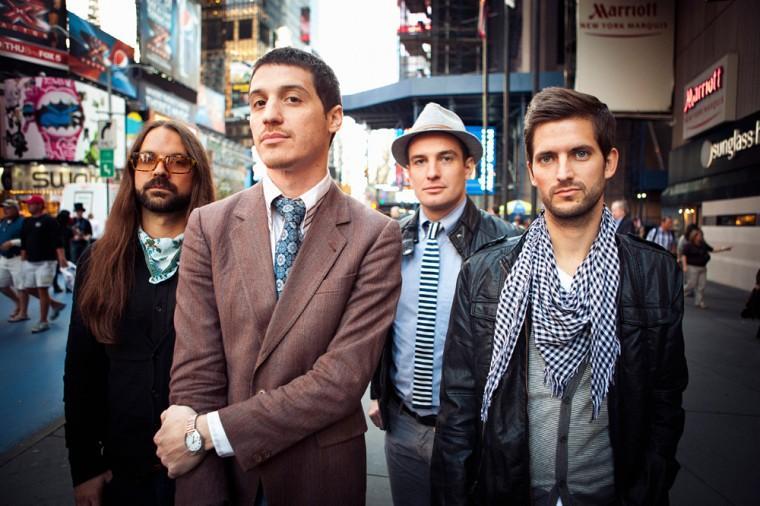With dozens of tours and hundreds of shows under its belt, alternative rock group Mutemath has garnered enough experience on the road to disregard ominous setbacks. Well, most of them.
Mutemath drummer Darren King said the band’s fall headlining tour, which concludes with a show at The Varsity Theatre tonight, has encountered a “fair share of adversity.”
“We’ve had flights canceled, our bus broke down and we have photo documentation of this,” King said excitedly. “It broke down at 666,666.6 miles, the mark of the beast.”
Perseverance through transportation hiccups and occult coincidences lends the outside world a view of Mutemath’s main focus – live performance.
“We’ve made it to some of these shows by the skin of our teeth, but we haven’t missed one,” King said.
The indie rockers have devoted their musical talents to Mutemath for nearly 10 years with the better part of that decade spent playing live gigs. The foursome has gained notoriety over time for its typically raucous, exuberant shows.
King rocks out so vigorously that his headphones, which he routinely tapes around his head before the show, inevitably shake loose and fall off mid-performance. What’s his secret for maintaining such a lively reputation?
“I allow myself to be lame and fairly lazy,” King said. “The idea is homeostasis, conserving my energy for the show. I woke up today at 3 p.m., which is not very practical, but it works for the tour.”
Mutemath has recorded three studio albums to date, and it’s not difficult to discern a manifestation of the band’s progression and health through the album’s tone. King described the band’s first full-length album, “Mutemath,” in terms of joy, optimism and youthfulness.
The music video for the self-titled album’s debut single, “Typical,” made a splash when its time-warping antics earned the group a Grammy nomination.
“Armistice,” the indie outfit’s second album, provided a grittier feel and foreshadowed the departure of guitarist Greg Hill.
“Frustration, confusion, it reflected our struggles,” King said.
Mutemath’s most recent effort, 2011’s “Odd Soul,” was composed with a different, more empowering strategy. The artists self-produced the album and the result was a healthier approach, according to King.
“It’s tough to get a producer. It’s some complete stranger, and you’re giving so much power over,” King said. “You pay them all this money and get the feeling they got you by the nuts a bit.”
King characterized “Odd Soul” as balanced, comfortable and on the lighter side of things. He said the album was crafted with live shows in mind, more specifically, “What would be fun to play?”
Baton Rouge is a sensible destination for Mutemath to end its six-week tour with South-African act “Civil Twilight,” as the band originated in neighboring New Orleans. King said the Crescent City was a great location for the young band to blossom, and it had an impact on the musicians’ developing sound.
“I think New Orleans deserves credit for influencing every artist today, especially beats,” King said.
The drummer said he and lead-singer Paul Meany formed the core of today’s band as a New Orleans-based collaboration called “MATH” in the early 2000’s. As the band grew in members and notoriety, it was confronted with establishing a new moniker. King said many bands laid claim to the name MATH and with lawsuits flying around, they selected their new name, “Mutemath.”
“We liked the symmetry of it. The four letters looked good in print,” King said.
Whether traversing travel difficulties, band-member turnover, producer woes or a naming dispute, it seems clear the battle-tested men of Mutemath are equipped to soldier on.
“We want to always be growing, going to new places and playing new venues,” King said. “I don’t feel done, content or satisfied.”








